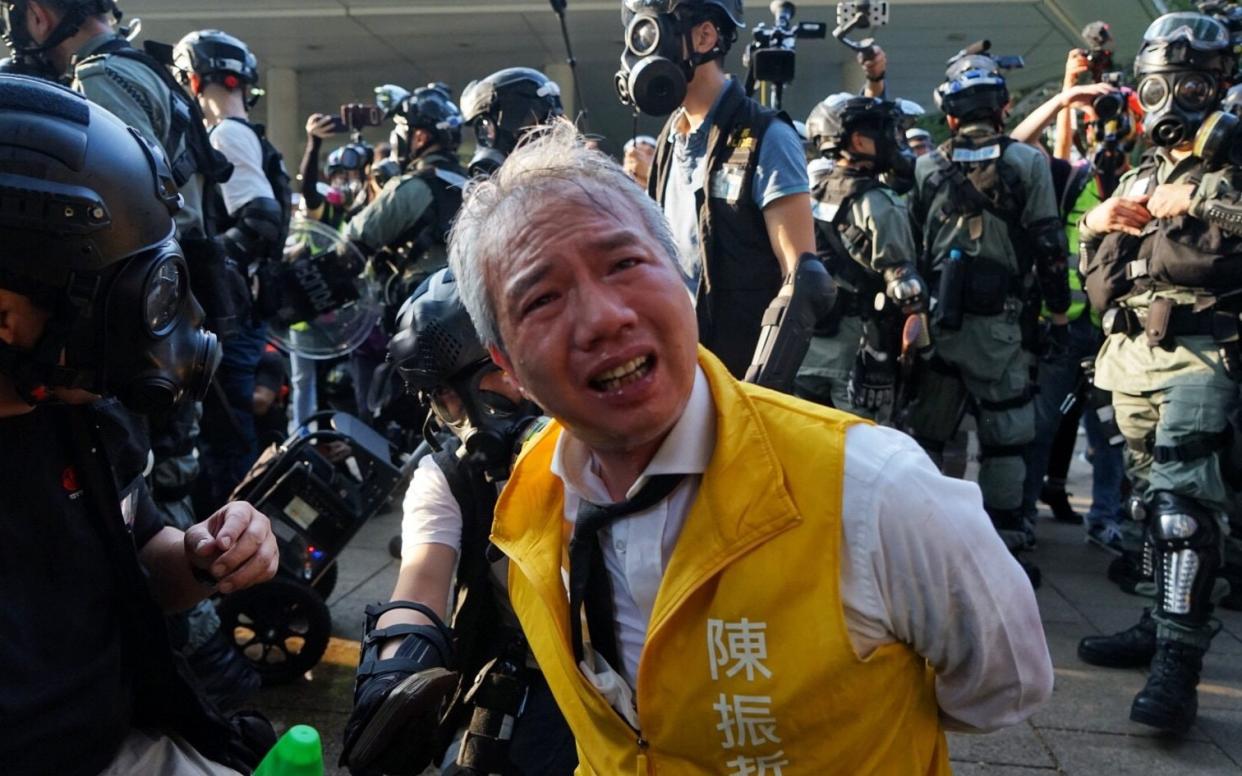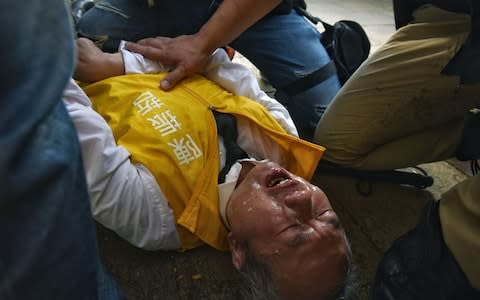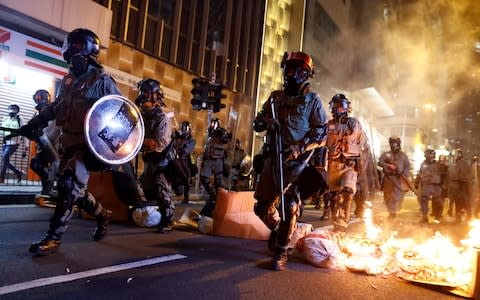Hong Kong riot police pepper spray 'Airport Uncle' as election protests turn ugly

A candidate in Hong Kong's elections who rose to fame for his peaceful defence of protesters was pepper sprayed at point-blank range before being arrested in the latest violent crackdown by police in the city.
Police attacked the silver-haired Richard Chan, 48, at close range, grabbing and turning him around as he tried to retreat, only to unleash another round directly into his eyes, before tackling him to the ground to make the arrest.
Mr Chan, a first-time candidate running in district council elections later this month, went viral after standing his ground between police and activists during mass airport protests in August, which shut down one of world’s busiest transport hubs. The incident earned him the nickname of Airport Uncle.
Pictures of Mr Chan's rough treatment is likely to further feed growing hatred for police who have been accused of disproportionate brutality.
Two other candidates were also arrested in the latest round of protests on Saturday, which came after protest leader Joshua Wong was banned from standing at the up-coming elections.

Dozens of candidates running for district council seats and hundreds of protesters gathered on Saturday afternoon at Victoria Park in a popular shopping neighbourhood, testing a loophole they said allowed for large-scale election meetings to be held in public.
But riot police surrounding the park declared the gathering unlawful, warning they wouldn’t hesitate to make arrests and deploy tear gas at the crowd of political hopefuls and their supporters, waving colourful campaign banners.
“This is the final chance for us to change Communist China’s control in Hong Kong,” Dennis Cheung, 30, one of the more than 1,000 candidates standing for 450 open council seats, told the Sunday Telegraph.

Mr Cheung, who works in advertising, is also a first-time candidate who vowed to help arrested protesters and educate residents about their rights if elected.
“Police are making unreasonable arrests of youngsters,” said Martin Ng, 65, a retiree. “I have full confidence Hong Kong people won’t tolerate this kind of brutality and suppression.”
Protesters were galvanised this weekend after prominent activist Joshua Wong became the city’s only candidate to be barred from running for a district council seat.

The election officer wrote in her reasoning the concept of “self-determination” that Mr Wong advocates could also refer to the idea of an independent Hong Kong, which was deemed inconsistent with the city’s mini-constitution, the Basic Law.
Mr Wong and his political party, Demosisto, however, deny supporting independence from mainland China.
The upcoming district council elections, currently slated for Nov 24, allow registered voters to select neighbourhood representatives responsible for community affairs, such as building awnings in parks or adding new bus routes.
While district councillors have no legislative power, the political party that wins the most seats will gain 117 of the 1,200 votes on an election committee that will select the city’s next chief executive in 2022.

